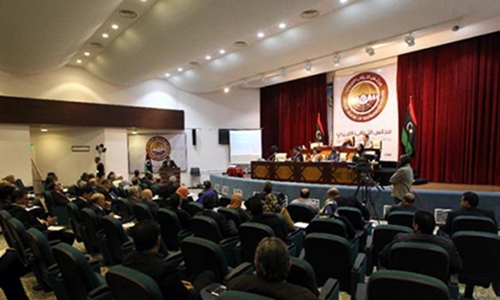100 Libya MPs back unity government, demand new vote
A majority of lawmakers from Libya's internationally recognised parliament said Wednesday that they supported a UN-backed unity government but had faced intimidation before a confidence vote.
The parliament, located in the eastern town of Tobruk, was unable to hold the vote on Tuesday for the new government line-up because it lacked a quorum.
In a petition seen by AFP, 100 of the parliament's 176 members said they supported a unity government but were "forcibly prevented" from voting on Tuesday after receiving threats.
"We, 100 members of the House of Representatives, confirm... our agreement on the proposed cabinet line-up," the lawmakers said.
"We need to decide on an appropriate place for a new parliament session as it has become impossible to hold one" in Tobruk.
Oil-rich Libya has had two rival administrations since mid-2014 when the recognised government was forced from Tripoli after a militia alliance including Islamists overran the capital.
The United Nations has been pushing both sides to back a unity government.
The UN's Libya envoy Martin Kobler said it was "unacceptable" that lawmakers had been threatened.
"Parliamentarians have to decide freely," he said in a statement, demanding that "the parliamentary process is unhindered and conducted in an environment free from threats or intimidation."
A Presidential Council, born of a UN-brokered agreement in December between a minority of members of the rival parliaments, last week put forward a unity government of 18 members.
A previous cabinet line-up of 32 ministers proposed by premier-designate Fayez al-Sarraj was rejected by the Tobruk parliament as being too large.
According to the parliament's website, 99 lawmakers would need to vote in favour of the new unity government for it to receive the legislature's approval.
Libya descended into chaos after the 2011 ouster of longtime dictator Muammar Gaddafi, allowing extremist organisations including the Islamic State group to gain significant ground.
Related Posts

